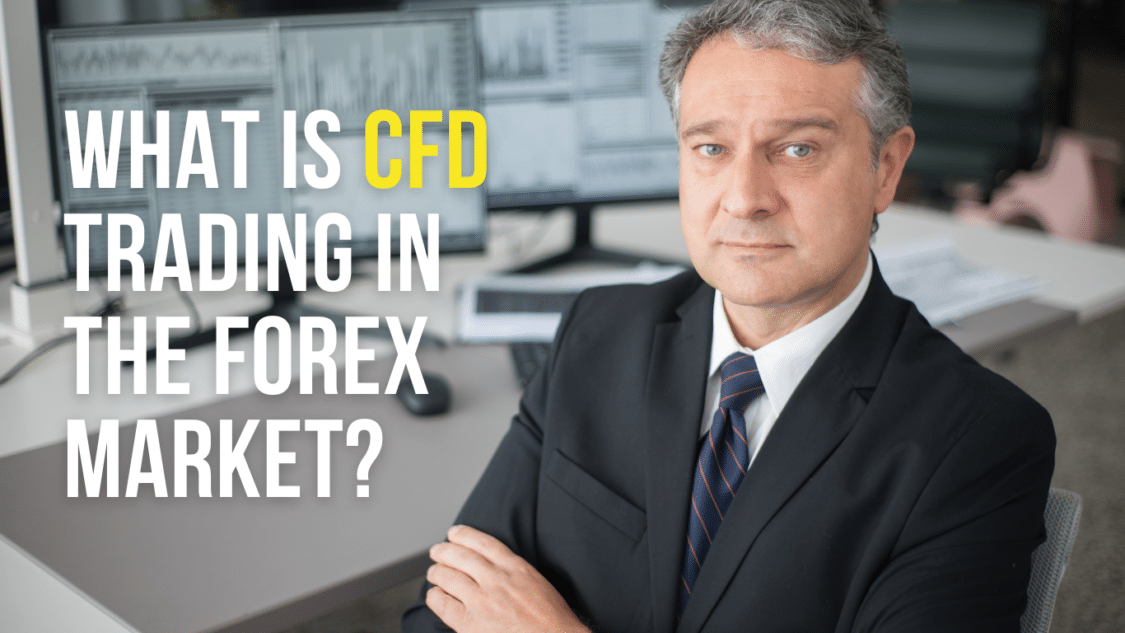CFD trading, or Contract for Difference trading, is a financial derivative that allows traders to guess the price movements of various financial assets in the Forex market without owning them. These instruments can include commodities, currencies, indices, and even cryptocurrencies.
A key advantage of CFD trading is that it allows traders to leverage their positions. This means they can trade more significant positions with a smaller initial capital outlay. This leverage can significantly increase a trade’s potential profits (and losses). It also means that traders must be careful to manage their risk appropriately.

CFD trades are executed through an online broker and can appear on various platforms, including desktop software, web-based platforms, and mobile apps. Some brokers also offer social Online CFD trading platforms. This allows traders who are trading in the Forex market to see and mimic more experienced traders.
To implement a this trading strategy, a trader chooses the instrument they want to trade and the size of their position. They then decide whether they think the instrument’s price will go up or down (this is known as going long or short, respectively) and place their trade accordingly. If the trader’s prediction is correct, they will make a profit; if incorrect, they will incur a loss.
Stamp Duty
Another notion to keep in mind with this is stamp duty. The specific circumstances under which stamp duty is payable on this kind of trades can vary depending on the jurisdiction. In some cases, stamp duty may be levied on CFD trades based on underlying assets subject to stamp duty, such as shares or real estate.
A CFD trade on a share liable for stamp duty may necessitate payment of duty based on the trade’s worth. In other cases, stamp duty may be payable on those trades regardless of the underlying asset. For example, some jurisdictions impose stamp duty on all CFD trades, regardless of the underlying asset. This is typically done as a way to raise revenue for the government or to regulate certain types of financial activities.
It’s important to be aware of the stamp duty implications of their CFD trades, as failure to pay the appropriate stamp duty can result in penalties and fines. Traders should check with their broker or the relevant regulatory authority to determine whether stamp duty is payable on their trades. And if so, at what rate?
While there may be a connection between stamp duty and trading CFD in some jurisdictions. The specific circumstances under which stamp duty is payable on CFD trades can vary.

The Risks
One important thing to note about trading CFD trading is that it is a highly speculative activity and carries a high level of risk. This is due to the leverage involved and the inherent volatility of financial markets. As such, it is not suitable for all investors. Traders should consider their risk tolerance and financial situation before engaging in this type of trading.
In addition to the inherent risks of trading CFD in Forex markets. There are also several other factors that traders should be aware of. These include fees and commissions charged by brokers and the potential for slippage (when the price at which a trade executes differs from the expected price). It is also important for traders to be aware of the various regulations and laws that apply to this method of trading in their jurisdiction.
Despite the risks, trading CFD in Forex market can be an exciting and potentially lucrative way for traders to participate in the financial markets. By carefully managing risk and staying up-to-date with market developments. Traders can improve their chances of success in this fast-paced and dynamic environment.
Trading CFD vs. Gambling
One of the main differences between CFD trading in the Forex market and gambling is the required skill and knowledge. Gambling is often based on chance, with the outcome of particular events (such as rolling a dice or drawing a card) largely unpredictable.
In contrast, trading CFD in Forex market, involves making informed decisions based on various factors, including market analysis, economic indicators, and geopolitical events. Any investing carries risk, but those who succeed in this type of trading are usually knowledgeable and experienced in making decisions regarding their investments.
Another key difference is the level of regulation. Gambling is often heavily regulated, with strict controls to ensure fair play and protect consumers. In contrast, the regulation of CFD trading in the Forex market can vary depending on the jurisdiction.
CFD Regulation
In some cases, this method of trading may be subject to the same level of regulation as other financial instruments. While in other cases, it may be less strictly regulated. It is essential for traders to take note of the regulatory environment in which they are trading and to choose a reputable and regulated broker.
A further difference is the level of risk involved. CFD trading and gambling both involve risk, but the amount of potential loss in CFD trades is determined by the position size and market volatility.
In gambling, the potential for loss is often much higher, with many games (such as slot machines and roulette) offering poor odds for the player. CFD traders can mitigate their risk by using risk management techniques like stop-loss orders. While gamblers have little control over the outcome of their bets.
In conclusion, while there are some similarities between the two, there are also important differences. This trading involves making informed decisions based on market analysis and carries a level of risk largely dependent on the trader’s position and the market volatility.
In contrast, gambling is often based on chance and carries a higher level of risk, with the potential for significant losses. As such, it is vital for traders to understand the nature of CFD trading and to manage their risk to be successful carefully.

Can you earn a living with trading CFD?
To make money with CFDs, traders must be well-educated on financial markets and components that affect the instruments they trade. This can include economic indicators, geopolitical events, and even market sentiment. Traders should also be disciplined in their approach to risk management, setting clear limits on the size of their positions and using stop-loss orders to minimize potential losses.
It is also important for traders to be realistic about their expectations. While making a profit from CFD trading is possible, it is not the best way to earn a living. Traders should be ready for the possibility of losses. It is also worth noting that the profitability of trading CCFD in Forex can vary significantly depending on the specific market conditions and the trader’s level of skill and knowledge.
In conclusion, while it is possible to earn a living from this trading method. It is not a guaranteed way to make money and carries a high level of risk.




